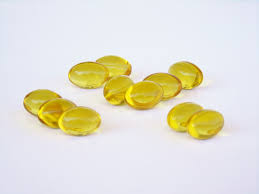|
We all want a “magic bullet” that will remove or mitigate the threat of COVID-19, particularly one that is inexpensive, widely available, and well-tolerated. While we wait hopefully for a vaccine, various alternatives have been proposed, some with scientific basis and some without. One of the more scientifically sound ideas suggests that vitamin D may help protect people from COVID-19 infection and/or severe illness following infection. It is certainly refreshing to see something positive among today’s seemingly endless stream of depressing news headlines, which may explain why various media outlets have seized on this theory. Bold headlines have made proclamations such as “Vitamin D Can Help Reduce COVID-19 Risks” and “Study Finds Vitamin D Reduces COVID-19 Risk”. But is the enthusiasm supported by science? Vitamin D is made by the body in response to UV light, and vitamin D deficiency is more common among populations living in higher-latitude regions, where there is less sunlight throughout the year, as well as in the winter months. Vitamin D functions as a hormone inside the body and impacts immune function, including susceptibility to respiratory illnesses. Therefore, it is plausible that maintaining adequate vitamin D levels could offer at least some protection from COVID-19.
This theory is supported by a convergence of various types of scientific evidence, which makes it more promising. The first level of evidence suggesting an association is observed at the population level: COVID-19 mortality rates are higher in areas with less sunlight. Other risk factors for vitamin D deficiency are also associated with higher rates of COVID-19 infection, including older age, more skin pigmentation and having overweight/obesity, suggesting that vitamin D status could provide a link between the two. And experts have proposed reasonable biological pathways explaining the potential protective actions of vitamin D on the immune system in the context of COVID-19 infection. There is also limited evidence from observational studies: one study suggested that among patients tested for COVID-19, those “likely deficient” in vitamin D were more likely to test positive than those who were “likely sufficient”. Among hospitalized COVID-19-infected patients in Iran, patients with sufficient levels of vitamin D had lower rates of infection severity and mortality. However, it is important to understand who is included in these studies and how that might impact results. For example, if studies are conducted only among individuals who are sick enough to be hospitalized or those receiving a test due to presentation of symptoms, the results could be biased due to exclusion of those who are infected but asymptomatic or less severely affected. There are also many other factors, such as underlying chronic conditions, which may explain the link between vitamin D and COVID-19 risks. Randomized controlled trials (RCTs), typically considered to be the “gold standard” of research, can avoid these biases. Researchers in Spain conducted a pilot RCT among patients hospitalized with COVID-19. Those who received a treatment to quickly increase their vitamin D status in addition to the standard of care were less likely to be admitted to the ICU. While promising, the trial was small and further rigorous studies are needed to try and confirm these results. Taking into account the limitations of the studies conducted on this topic as well as the small amount of available evidence, the NIH currently does not recommend using vitamin D as a preventive measure or treatment for COVID-19. For now it seems advisable to consider taking a moderate-dose vitamin D supplement, as does Dr. Anthony Fauci, to protect against vitamin D deficiency and help keep your immune system healthy, but stick to more proven methods like wearing a mask and social distancing for mitigating COVID-19 risk.
0 Comments
Your comment will be posted after it is approved.
Leave a Reply. |
©2017 WeighingInBlog. All rights reserved. 401 Park Drive, Boston, MA





 RSS Feed
RSS Feed

